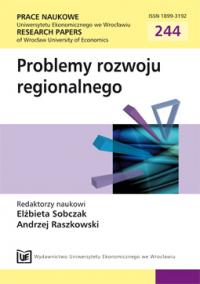
Regional diversification of EU support absorption for Polish rural areas
Regionalne zróżnicowanie absorpcji unijnego wsparcia dla polskiej wsi
Keywords: Common Agricultural Policy; regions; support instruments for agriculture and rural areas
The study briefly presents Common Agricultural Policy implemented in the European Union and characterizes major sources of its financing. Against the background of general situation referring to the means paid out in Poland, an evaluation of EU support diversification for rural areas and agriculture sector was performed. The evaluation referred to both values of amounts paid out in recent years and average means paid out calculated per one entity in the register of manufacturers and an agricultural farm in the system of regions.
More...